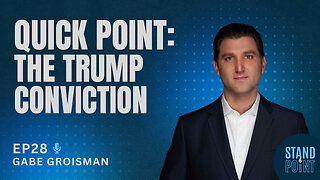#27 Napoleon Bonaparte
Napoleon Bonaparte (1769–1821) was a French military and political leader who rose to prominence during the French Revolution and became Emperor of the French from 1804 to 1814. He is considered one of the greatest military commanders in history and had a significant impact on Europe and the world.
Some key points about Napoleon's life and career include:
Early Life and Rise to Power: Napoleon was born on August 15, 1769, in Corsica, which was then a French territory. He attended military school and quickly rose through the ranks of the French Revolutionary Army due to his military genius and leadership skills.
Italian Campaigns: One of Napoleon's early successes was his command in the Italian campaigns of the French Revolutionary Wars. His strategic brilliance and innovative tactics led to several victories against the Austrians and other European powers.
Coup d'État: In 1799, Napoleon orchestrated a coup d'état and established himself as the First Consul of France, effectively becoming the ruler of the country. This marked the end of the French Revolution and the beginning of the Napoleonic era.
Napoleonic Code: As ruler, Napoleon implemented numerous reforms, one of the most significant being the Napoleonic Code (also known as the Civil Code), which served as the foundation for modern civil law systems in many countries.
Emperor of the French: In 1804, Napoleon declared himself Emperor of the French, effectively making France an empire. He centralized power and expanded his empire through military campaigns.
Military Campaigns: Napoleon's military campaigns are legendary. He defeated a series of coalitions formed by European powers, expanding the French Empire across much of continental Europe. Some of his most famous battles include Austerlitz, Jena-Auerstedt, and Wagram.
Downfall and Exile: Napoleon's empire began to crumble in 1812 with the disastrous invasion of Russia. After suffering significant losses, he was eventually defeated by the Sixth Coalition in 1814. He abdicated the throne and was exiled to the island of Elba.
Hundred Days: In 1815, Napoleon escaped from Elba and returned to France for a brief period known as the Hundred Days. However, his return led to another coalition against him, and he was defeated at the Battle of Waterloo by the British and Prussian forces.
Final Exile and Death: Following his defeat at Waterloo, Napoleon was exiled again, this time to the remote island of Saint Helena in the South Atlantic. He spent the final years of his life in exile, and he died there on May 5, 1821, possibly due to stomach cancer.
Napoleon's legacy is complex and multifaceted. He is celebrated for his military genius, administrative reforms, and the spread of revolutionary ideals across Europe. However, his ambitious conquests also resulted in widespread destruction and loss of life. He left an indelible mark on world history, influencing political and military strategies for generations to come.
www.antharas.co.uk/ companies website or top book distributors!
#BusinessStrategy
#Entrepreneurship
#Leadership
#Management
#Marketing
#Finance
#Startups
#Innovation
#Sales
#SmallBusiness
#CorporateCulture
#Productivity
#SelfDevelopment
#SuccessStories
#PersonalBranding
#Networking
#Negotiation
#BusinessEthics
#TimeManagement
#GrowthStrategies
#MarketAnalysis
#BusinessPlanning
#FinancialManagement
#HumanResources
#CustomerExperience
#DigitalTransformation
#Ecommerce
#SocialMediaMarketing
#BusinessCommunication
#ChangeManagement
-
 42:22
42:22
The Why Files
2 days agoProject Looking Glass | The Time Warriors of the 2012 Apocalypse
13.2K45 -
 LIVE
LIVE
Major League Fishing
2 days agoLIVE Bass Pro Tour: Stage 5, Day 1
671 watching -
 1:48:49
1:48:49
Barstool Yak
5 hours agoThe Yak with Big Cat & Co. Presented by Rhoback | The Yak 6-6-24
13.1K2 -
 23:33
23:33
Lou Dobbs
15 hours agoThe Great America Show - Dark Money, Marxist Dem Nightmare
29.5K7 -
 1:05:28
1:05:28
Ben Shapiro
3 hours agoEp. 1980 - From The Greatest Generation To The Most Obnoxious Generation
31.2K41 -
 2:28:14
2:28:14
TheAlecLaceShow
4 hours agoGuests: Congressman Warren Davidson | Congressman Eric Burlison | Mark Geist | The Alec Lace Show
25K3 -
 14:25
14:25
Standpoint with Gabe Groisman
3 hours agoEp. 28. Quick Point. The Trump Conviction. 6/6/24
12.5K6 -
 1:16:53
1:16:53
Russell Brand
4 hours agoRussell Brand LIVE with Donald Trump Jr
90.9K192 -
 50:06
50:06
Miss Understood With Rachel Uchitel
1 day agoReality TV News & Gossip with Rachel Uchitel & Sarah Fraser
31.5K4 -
 2:58:08
2:58:08
The Charlie Kirk Show
4 hours agoLIVE at Donald Trump Swamp the Vote Rally in AZ | Lake, Rep. Biggs | LIVE 6.6.24
86.9K49